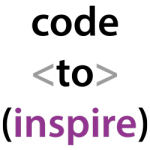By Esra Elshafey and Katie Ellman
There are 3.6 million female students in Afghanistan today, compared to 0 in 2001. However, social limitations for women still exist—women make up only 16% of the current Afghan labor force.
Fereshteh Forough’s passion is to empower young Afghan women by hitching their economic and social  advancement to the country’s growing tech industry. She’s the Founder and President of Code to Inspire, the first coding school for girls in Afghanistan.
advancement to the country’s growing tech industry. She’s the Founder and President of Code to Inspire, the first coding school for girls in Afghanistan.
Forough was born as an Afghan refugee in Iran. One year after the fall of Taliban, she moved to Herat, Afghanistan with her family. She received her Bachelor’s degree in computer science from Herat University and later a Master’s degree from Technical University of Berlin in Germany. Forough was a 2013 TED Talks speaker and a 2015 Clinton Global Initiative speaker.
Bard MBA student Esra Elshafey recently sat down with Forough to discuss how CTI educates Afghan women with in-demand programming skills, empowers them to add unique value to their communities, and inspires them to strive for financial and social independence.
The following Q&A is an edited excerpt from the Bard MBA’s February 3rd Sustainable Business Fridays podcast. Sustainable Business Fridays brings together students in Bard’s MBA in Sustainability program with leaders in business, sustainability and social entrepreneurship.
Listen to this interview and others on the Bard MBA Sustainable Business Fridays podcast on an Apple or Android device.
BARD MBA: Tell us about your background and what inspired you to start Code to Inspire.
Forough: I was born as a refugee in Iran during the Soviet invasion of Afghanistan, and I got my high school degree in Iran. In 2002, one year after the Taliban Regime collapsed, we moved back to Herat, Afghanistan, the city my family is from. I got my Bachelor’s in Computer Science in Afghanistan. Next, I went to Germany for my Master’s in Computer Science from the Technical University of Berlin, and then I went back to Afghanistan and taught as a computer science professor for three years.
So, a lot of issues in my life inspired me to think about establishing Code to Inspire as the very first coding school for girls in Afghanistan. Being born as a refugee, you face a lot of challenges, including being deprived of an education, which I think is one of the basic human rights. That definitely made me think about how I could help everyone, especially the girls in Afghanistan, to access education.
As a female student in a technical field, you also face a lot of challenges. There are cultural barriers for women [in Afghanistan]. If they study computer science, they need to practice and to do group work and activities, and there is a lack of safe space for girls to go for extra studying, for networking, for social activities. Not a lot of families can afford extracurricular activities for girls, so if girls want to take further classes they are not able to do so. I established Code to Inspire as safe place for girls to come and get an education and also to create portfolios and resumes so they can start working online.
BARD MBA: What will coding enable the girls and women of Afghanistan to do?
Forough: During the Taliban regime, there were only 900,000 students going to school in Afghanistan, and none of them were girls. It was the same in the work force—there were zero women in the workforce. After the Taliban collapsed, we made a lot of improvements, and now there are about 9 million students going to school every day, and 4.2 million of them are girls. There is huge progress, especially for women’s education in Afghanistan.
On the question of how coding can enable women in Afghanistan, coding is like a language. You use language to communicate with each other, so coding can be a tool to be used for communication. It can also empower you be more creative and innovative. So one aspect is creativity and innovation.
The other aspect is that there are a lot of challenges that can be overcome with coding. Many families will not allow their daughters to travel by themselves to other cities to find a job. It is not part of our culture to go to live in other cities by yourself, so women are very limited to their hometowns and mobility is a big issue. Imagine that you know how to code. With internet access and a computer, you can work online. So coding allows you to tackle the issue of travel and social restriction. And once the girls are bringing income to their families through coding, they can be financially independent, which also helps them take part in the decision-making process of the community.
BARD MBA: How do you deal with the pushback against women’s education in Afghanistan?
Forough: Women’s education and empowerment is a very sensitive topic in Afghanistan because there are still a lot of people who are extremist or who are against women’s education. They see it as a threat and not as a way to help the community.
In a country like Afghanistan that is traditionally male dominated and where women face a lot of barriers in the education sector, it is very important to establish a credible and trustworthy relationship with parents and community. Once you have their support, they will become your advocate and help you grow your cause.
 At Code to Inspire, we try to really be engaged with the families, and we establish good relationships with them so they can be our advocate and support. We involve the parents of the girls by sending thank you letters, and if we see that a student is absent, we call the parents to let them know and to ask why.
At Code to Inspire, we try to really be engaged with the families, and we establish good relationships with them so they can be our advocate and support. We involve the parents of the girls by sending thank you letters, and if we see that a student is absent, we call the parents to let them know and to ask why.
There is a lot of pushback on social media about whether or not women should learn coding. We not only teach our girls certain skills, but we also want to bring a social impact to the community. By helping the girls find specific problems in the community and come up with mobile applications or other solutions that could solve them, it tells people that providing opportunities for women is important so they can give back to the community.
I think that if people are against what you do, you are not going to prove them wrong. We show them a positive side of what we do and engage them so they understand the value of what this program can do, not only for the girls but also for the community.
BARD MBA: how do you balance culture and education in that environment?
Forough: With Code to Inspire, we try to keep the balance between technology, education and family. By providing a safe and secure environment and a space only for girls, we want parents to feel comfortable when they send their daughters to our coding school. So not only do the families feel good about this, but the girls also are in an environment in which they can learn and feel relaxed and engaged.
BARD MBA: What is the key, not only in Afghanistan but in Central Asia, the Middle East and the world, to promoting a more sustainable environment of success for women?
Forough: Women should support each other. Creating a network of women professionals who can be role models for younger girls can help a lot. In Afghanistan, there are not currently a lot of role models for the girls in the technology sector, so definitely creating a community of women who can support each other, create opportunities for each other and mentor one another will go a long way toward empowerment.
BARD MBA: Where do you see the future of Code to Inspire?
Forough: In the near future, we would love to expand our coding school to other cities in Afghanistan. We also want to create a strong professional network of women in IT who can support and help each other. Longer term, I would like to replicate the model to the Middle East, Africa and countries that have the same issues for women accessing education and technology.